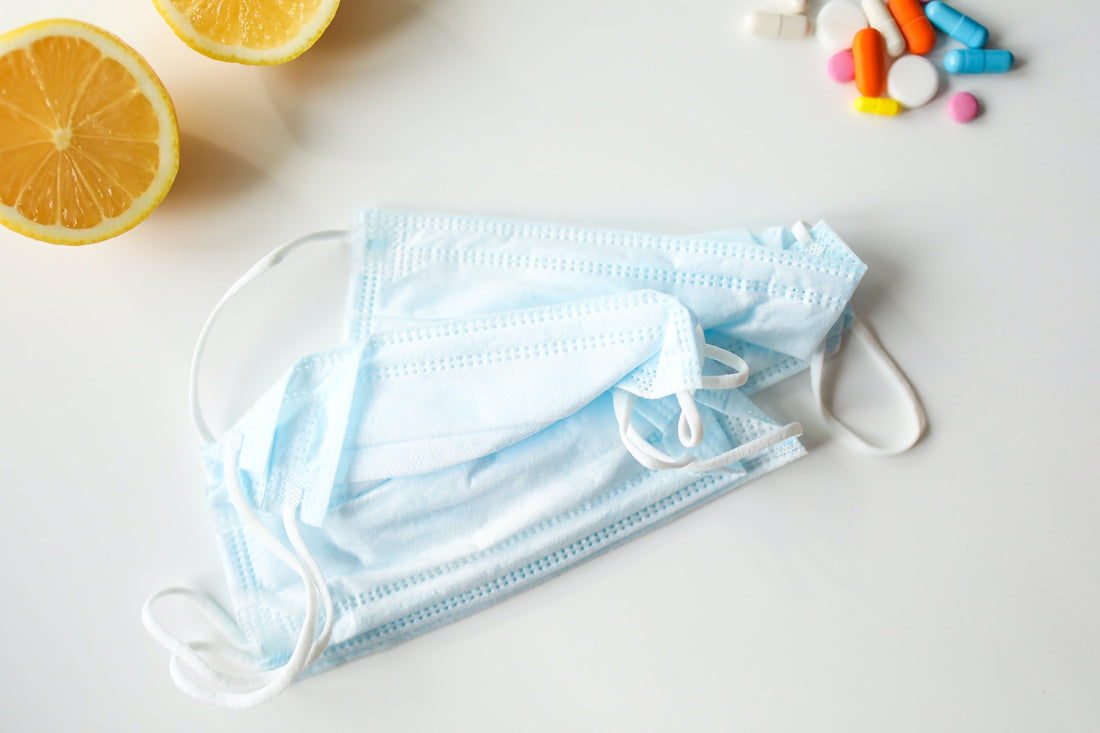
How Does Covid-19 Affect Your Oral Health?
Share
Whether you have personally experienced illness from Covid-19, the past years have presented numerous challenges, unforeseeable circumstances, and many disruptions from our daily routines. We have had to learn how to multitask on a whole new level, accept sudden changes, and become adaptable and flexible to change. Now more than ever, be mindful of how our actions influence the health and safety of those around us. We have also learned about the correlation between good oral health-related to Covid-related complications and systemic diseases.
Poor dental health may influence the severity of Covid symptoms in cardiac patients.
According to a study published in the American College of Cardiology, poor oral health may affect the severity of Covid-19 in those individuals with pre-existing cardiovascular disease. This study revealed a correlation between poor oral health and a high inflammatory response (CRP) in the body, particularly for patients with cardiac disease. Previous research shows that individuals with periodontal (gum) disease are at an increased risk for heart problems. Given this, it is not surprising that poor dental health continues to present a risk factor for cardiac patients battling Covid.

Covid-19 has affected people’s access to dental care, especially in more rural locations.
Certain populations are at greater risk for developing Covid, especially individuals in rural locations. Concurrently, those populations have higher chances of developing dental and systemic diseases. Access to dental care is one of the main reasons for poor oral health outcomes. Throw in a pandemic, and access to dental care becomes even more problematic.
Dental offices were required to suspend preventive care for months. Patients with chronic gum disease are often placed on more frequent recall schedules, meaning they see a dental provider as often as every three months. With offices closed at the beginning of the pandemic and more closing because of the pandemic, patients were unable to receive the necessary preventive dental care. Even when offices began to reopen, there was (and still is!) fear in scheduling a visit that was not considered emergent.
Dry mouth is common with long-term mask wear.
With mask mandates in place and the long lengths of time wearing a mask, especially if working around others, there is a good chance you notice a dry mouth throughout the day. It is much harder to drink water and stay hydrated when wearing masks for long periods. A dry mouth can lead to an increase in plaque accumulation and gum inflammation (gingivitis). The more plaque present, the greater chance of developing gum disease, cavities, or changes in the enamel (outer layer of the tooth). It is essential to stay hydrated with water as often as possible and avoid sucking on candies that contain sugar to supplement mouth dryness.

Oral health prevention during a pandemic is key!
Prevention is key in dentistry. Routine dental exams and cleanings may have been on the back-burner of the never-ending “to-do lists” since the pandemic started. Not to mention the current issues with staff shortages and the need for social distance in dental offices, especially given masks cannot be worn during treatment. These limitations affect how long patients may have to wait between visits, so it is critical to know how to implement good oral health practices into your at-home routine.
- Brush twice a day for 2 minutes.
- Practice gumline brushing by angling the toothbrush at a 45-degree angle. This technique allows half of the toothbrush bristles to sweep along the gums to remove plaque while the other half removes plaque resting on the tooth. Be sure to use a soft-bristled size appropriate for your mouth. Don’t forget to clean your tongue as well. Grin Natural offers an excellent tongue cleaner and toothbrush set to help remove nasty oral bacteria.
- Floss nightly by wrapping the floss around the sides of each tooth and moving it up and down. Think of hugging the tooth with floss to remove hard-to-reach places plaque loves to hide. Traditional waxed floss or convenient dental floss picks are two great options for removing interproximal plaque.
- Rinse using an antimicrobial mouth rinse. The antimicrobial ingredients help kill or reduce harmful oral bacteria associated with gum disease and cavities.
- Stay hydrated by drinking water. Limit sugary drinks and sticky snacks to mealtimes rather than frequent sipping or snacking. The frequency of sugar exposure is more important than the quantity.
- Visit your dental provider every 3-6 months, depending on your dental and systemic needs. Look for providers that have implemented Covid-safety practices, such as social distancing between patients, wearing appropriate personal protective equipment, and asking Covid screening questions.
Good oral health is linked to good systemic health, and their connections with a highly contagious and deadly virus should encourage us all to take our oral health more seriously. Furthermore, healthy gums and strong enamel mean fewer trips to the dentist.

Help reduce your chances for adverse dental outcomes by recognizing the correlations discussed here and implementing the above six steps.
Written by: Kristen Cockrell, RDH, MSDH
Kristen is a Pediatric Registered Dental Hygienist with a passion for preventive dentistry and oral health education. In addition to working full-time as a hygienist and mother to two young boys, Kristen is an oral health expert with Grin Natural.
